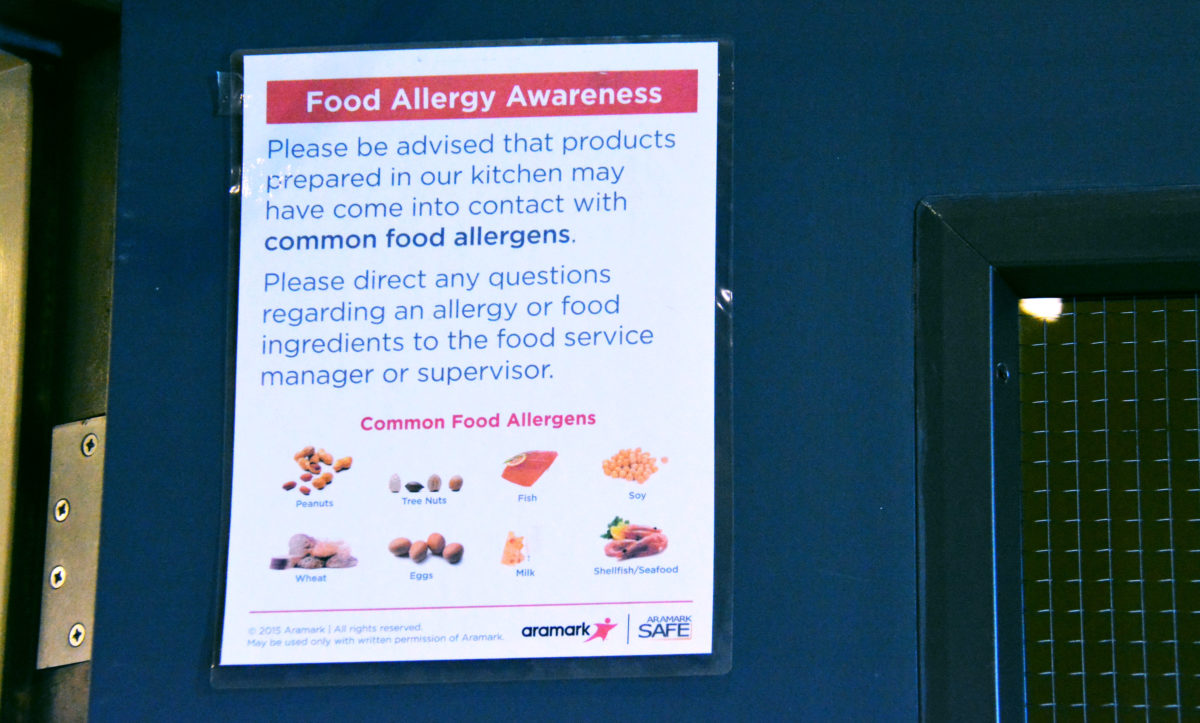When first-year St. Thomas University student Emma Van Horne realized she couldn’t enjoy Jell-O from meal hall, she was frustrated.
Van Horne is allergic to acetaminophen, dust, grass and strawberries.
“There was Jell-O the other day and it was red, and I was assuming it was strawberry, so I went up and asked and they couldn’t tell me exactly what flavour it was,” Van Horne said.
Van Horne said strawberries can send her into full anaphylactic shock and a less serious incident can cause her an itchy throat, nose and tongue.
“A lot of things have sneaky strawberries in them, so I really have to be vigilant with that,” Van Horne said.
Students on campus who have allergies often struggle to find something to eat at meal hall.

Claire Leighton is one of those students. She’s allergic to eggs, dairy, peas, sesame seeds, tree nuts and pollen. Most of Leighton’s allergic reactions aren’t immediate, but her tree nut allergy is severe.
“It’s been hard to find options that I can eat and besides from that, because I do have so many allergies [and] I also have a very sensitive digestive system so the food alone, even when I can find something, it isn’t always great food. It’s definitely been difficult,” Leighton said.
Although Leighton is having a hard time managing her diet at St. Thomas, she still believes the university is doing everything it can.
“I have a lot of allergies and that’s not their fault. What I really like is that they don’t actually cook with nuts in the kitchen, they just use it in their desserts so that’s really helpful,” Leighton said.
Leighton said she understands most people who use the meal hall have different diets, so the way they label their meals is helpful.
“Everything is really clearly marked which is awesome. I was worried I would have to ask about everything,” Leighton said, referring to the sheets by each meal that say what common allergens are in each dish.


Food allergy policy in the works
St. Thomas doesn’t have a campus wide food allergy policy, but it does have a scent policy. Jason Scarbro, the director of human resources at St. Thomas, said the Scent Reduction Guideline is meant to be a proactive document.
“It’s meant to provide some information so that people can make good decisions around reducing the amount of scents that they use,” Scarbro said.
The guideline includes educational information on reducing scents which can be found on posters around campus. It includes a printable awareness card for people to show if they feel uncomfortable informing others about scent allergies on campus.
Scott Duguay, the associate vice-president of enrolment management at STU said students should make staff aware of their allergies.
“The biggest thing I would stress to students with allergies would be to reach out directly to the chef or the management [at meal hall] and they will, with every student that has a particular allergy, work out a plan for them for food services,” said Duguay.
“We’ve had students who’ve had allergies that are fairly unique. In those cases, we’ve made arrangements so students can live on campus safely.”
Duguay said there are plans to create an allergy policy but nothing has been confirmed.

